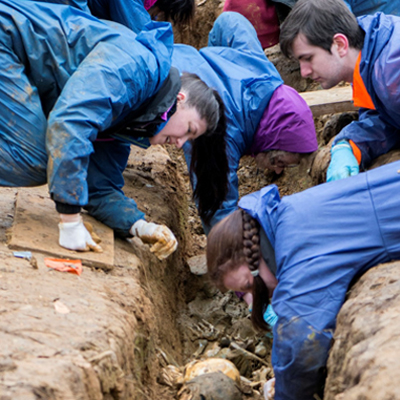The aim of this course is to provide an understanding and experience of the disciplines underpinning critical evaluation of quantitative information applied within the Forensic Sciences.
At a glance
-
- Dates
-
- Please enquire for course dates
- Duration5 days
- LocationCranfield campus
- Cost£2,250 - Standalone Short Course fee Concessions available
Course structure
One course per year; 5 days duration per course.What you will learn
On successful completion of the course you will be able to:
- Appraise the fundamental features of effective experimental design and the value of thesis-antithesis-synthesis and evidential arguing in public life,
- Analyse and debate how confidence may be secured through effective reliability and reproducibility assessments and by framing and defending an argument,
- Distinguish between evidential types used in court and research,
- Compose comprehensive arguments, using appropriate statistics, in the analysis and interpretation of forensic cases, and be able to explain these processes to the layman,
- Evaluate forensic evidence using Bayes’ theorem.
Core content
- Experimental design
- Interpretation and assessment
- Effective framing & rebutting of arguments
- Problem solving
- Evidential types
- Use of relevant statistics for design & interpretation
- Courtroom statistics.
The syllabus will follow the general course of a generic investigative process from the appropriate framing of a question to the critical interpretation of data and information. The appropriate use of data in well constructed arguments will be considered in order to distinguish between fact, opinion and speculation. Intellectual rigour will be challenged, and the ability to identify weakness in argument will be developed. Data will be examined for reliability and reproducibility with a focus on the distinct features of forensically related data. Appropriate use of descriptive and hypothesis testing statistics will be practiced and the ‘prosecutor’s fallacy’ explored. Bayes’ Theorem will be considered and rehearsed through case studies.
Upgrade to a professional qualification
This short course will be taught at Masters standard as it is one of the modules that comprise the postgraduate Forensic Modular Masters Programme. Registering for this Short Course for Credit and successfully passing the associated assessment will gain you 10 Cranfield credits. These could then be used to apply for a transfer towards a PgCert/PgDip or MSc in the Forensic Programme should you wish to complete one of these courses within 5 years.
Find out more about short course credit points.
Who should attend
Suitable for anyone wanting to understand how critical assessment, argument and design are applied in the area of forensics.Concessions
Concessions are available for Cranfield alumni and multiple bookings from the same organisation, please contact us to discuss.Accommodation options and prices
This course is non-residential. If you would like to book accommodation on campus, please contact Mitchell Hall or Cranfield Management Development Centre directly. Further information about our on campus accommodation can be found here. Alternatively you may wish to make your own arrangements at a nearby hotel.
Location and travel
Situated close to Milton Keynes and Bedford, the Cranfield campus is situated in Wharley End, very close to Cranfield village, and is about 10 minutes from the M1 motorway. There is rail and road access to most major airports as well as coach and train stations. Cranfield campus also has its own airport for private executive business travel.
Download a visitor guide including map, directions and health and safety information.
Location address
College RoadCranfield
Bedfordshire
MK43 0AL
How to apply
To apply for this course please use the online application form.
Read our Professional development (CPD) booking conditions.

